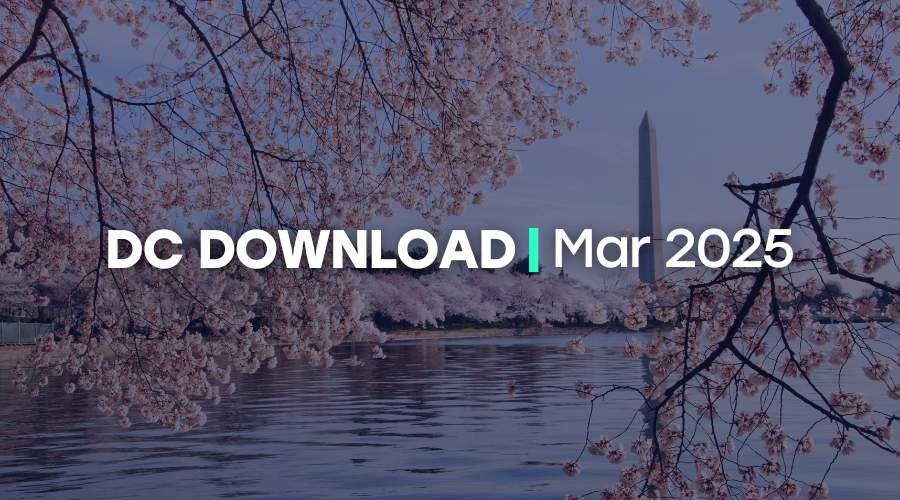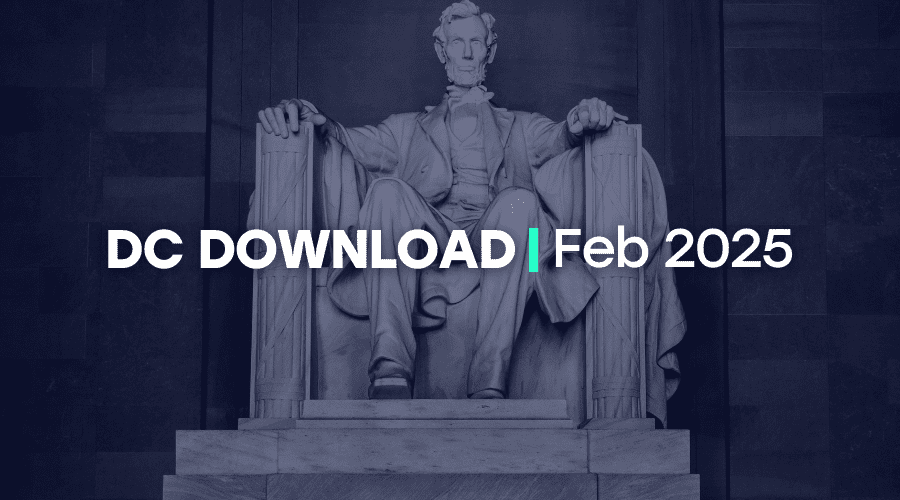By Ana Montañez
Despite the Easter recess, Congress kept busy during the first month of spring – between the confirmation of Judge Ketanji Brown Jackson to be a U.S. Supreme Court Justice and negotiations on COVID-19 supplemental funding. If you have been busy doing your taxes, keeping up with your favorite baseball team, or egg hunting, fear not. Here is a download of the most pressing issues in Washington, DC affecting nonprofits:
COVID-19 Funding Update
A few days before Congress left for the Easter recess, the Senate reached a deal on funding for expired COVID-19 programs. The $10 billion agreement, which would enable U.S. officials to purchase more therapeutics, tests, vaccines, and other supplies, is less than half of what The White House asked Congress to provide, and is only expected to last a few months before COVID programs would need an additional infusion of cash. Unfortunately, due to disagreements on immigration policy between Democrats and Republicans, the vote on COVID-19 funding was postponed until Congress returns this week.
On the list of unresolved issues, Congress will have to deal with the discrepancies between the Senate and House bills for restaurants and small businesses. Before leaving for recess, the House of Representatives approved a $55 billion package of aid to restaurants and other hard-hit industries affected by the pandemic. The legislation would provide $42 billion to replenish a fund for struggling restaurants. The measure would tack on another $13 billion for small businesses that suffered revenue losses of at least 40 percent during the pandemic, without regard to what industries they operate in, with grants capped at $1 million each. With a different version of the bill in the Senate, lawmakers will have to go to conference to hash out discrepancies on funding for hard-hit industries.
Bill to Strengthen the Nonprofit Sector Introduced
On April 26, Reps. Betty McCollum (D-MN) and Fred Upton (R-MI) introduced the Nonprofit Sector Strength and Partnership Act of 2022. The bill would create mechanisms that leverage the mission, knowledge, and impact of nonprofits to help government and the sector work together more effectively in pursuit of shared goals. It calls for the release of quarterly economic data on the nonprofit sector in the same way as other industries, reducing paperwork for nonprofits to register and fundraise in multiple states, increasing access to national service, streamlining federal grant processes, and recommending clearer rules on nonprofit civic engagement.
Independent Sector joins more than 500 nonprofit organizations from all 50 states in applauding this legislation. Please add your organization’s support today.
Bill Supporting Volunteer Drivers Introduced
On April 6, Rep. Pete Stauber (R-MN) introduced the Volunteer Driver Tax Appreciation Act of 2022 (H.R. 7432), which would increase the federal tax deduction mileage rate for volunteer drivers from its current rate, 14 cents per mile, to be equal to the Internal Revenue Service (IRS) business rate, currently set at 58.5 cents per mile, provided that the volunteer is transporting people or property on behalf of a charity. Independent Sector supports this legislation and believes that volunteers are the lifeblood of nonprofits. They provide proactive leadership, deliver essential services, and expand the impact of nonprofit missions.
Please take 1 minute to ask your member of Congress to support this legislation.
Fixes to Address Failures in Student Loan Programs Announced
On April 19, the Department of Education announced measures that will bring borrowers closer to public service loan and income-driven repayment (IDR) forgiveness by addressing historical failures in the administration of federal student loan programs. Federal Student Aid (FSA) estimates that these changes will result in immediate debt cancellation for at least 40,000 borrowers under the Public Service Loan Forgiveness (PSLF) Program. Several thousand borrowers with older loans will also receive forgiveness through IDR. Additionally, more than 3.6 million borrowers will receive at least three years of additional credit toward IDR forgiveness.
The announcements include changes to the implementation of the income-driven repayment option, known as IDR. The Education Department plans to make a one-time adjustment to count months of long-term forbearance toward qualifying months for the purposes of repayment under both the public service program and income-driven repayment. Borrowers may get forbearance, or a temporary suspension in payments, from their loan servicer for reasons such as medical expenses, a change in employment, or financial difficulties.
Giving Increased at the End of 2021
According to the Fundraising Effectiveness Project report, charitable giving increased by 2.7% in the fourth quarter of 2021 due to the support of first-time donors in 2020 who continued to donate to organizations in 2021. Despite the support of first-time donors, the number of people who gave at the end of last year fell 5.7% from 2020 levels.



